
define technicians: What Makes Them Essential in Various Fields?
Table of Contents
ToggleThe Core of Technical Expertise: Unpacking the Foundational Definition of a Technician
When we think about the intricate machinery that powers our world, the complex systems that underpin modern life, or the precision required in countless fields, a specific kind of professional comes to mind. This individual possesses not just theoretical understanding, but the practical skills necessary to make things work. This professional is often referred to as a technician.
But what precisely does that term encompass? At its foundation, a technician is typically defined as a worker or person who has been trained with special skills or knowledge in a particular technical process or field. They are the essential link between abstract theory and tangible application, translating scientific or engineering principles into operational realities.
Imagine a laboratory where groundbreaking research is conducted. While scientists design experiments and analyze data, it is often the technician who operates the sophisticated equipment, calibrates the instruments, and ensures the experiments run smoothly. Think about a complex industrial plant. Engineers might design the overall system, but technicians are on the ground, managing the machinery, diagnosing issues, and performing necessary maintenance. This practical, hands-on capability is a defining characteristic of the role.
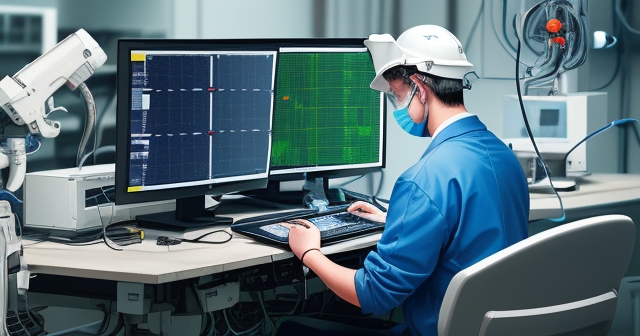
The term itself suggests a focus on technique – the specific methods and procedures used within a discipline. Technicians are masters of these techniques. They possess the proficiency to execute intricate tasks reliably and efficiently. Their training is often highly specialized, equipping them with the precise knowledge and dexterity required for their particular area of expertise.
So, at its most fundamental level, a technician is a skilled individual whose work is grounded in practical application, technical process, and specialized knowledge. They are the doers, the maintainers, and the operators who keep the wheels of progress turning in a multitude of sectors. This foundational understanding is crucial before we delve into the vast landscape of technical roles that exist today.
Key Characteristics of Technicians:
- Practical knowledge in specific technical fields.
- Ability to operate and maintain complex systems.
- Specialized skills honed through training and experience.
| Attribute | Description |
|---|---|
| Hands-on Skills | Ability to operate and troubleshoot machinery. |
| Analytical Skills | Capacity to analyze complex data and problems. |
| Technical Knowledge | Understanding of theories and processes in technology. |
Skills and Knowledge: The Pillars Supporting the Technician's Role
Building upon the core definition, let's explore the essential attributes that define a technician: their skills and knowledge. These aren't merely academic qualifications, though specialized training is often a prerequisite. They are practical competencies honed through rigorous education, apprenticeship, and hands-on experience.
A primary skill set for many technicians revolves around the operation, maintenance, and repair of equipment and machinery. Consider an aerospace technician working on a jet engine. They need profound knowledge of hydraulics, mechanics, and electronics, coupled with the fine motor skills to work with precision tools in confined spaces. Their ability to diagnose a malfunction and execute a precise repair is paramount to safety and operational efficiency.
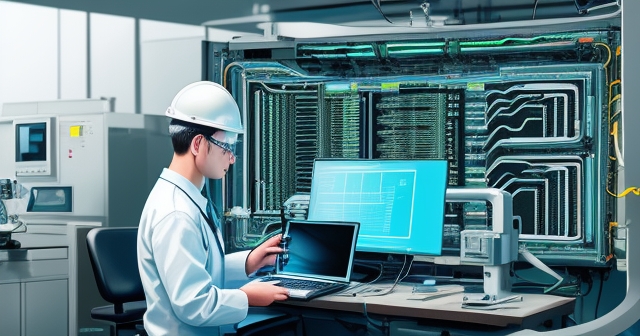
But technical skills extend far beyond just turning wrenches or operating complex panels. In modern fields, they increasingly include proficiency with software, data analysis tools, diagnostics systems, and even communication technologies. A computer technician, for instance, must understand hardware architecture, operating systems, networking protocols, and cybersecurity principles. They need the ability to troubleshoot complex software conflicts as well as physical hardware failures.
Knowledge for a technician is deep but often applied. While a scientist might possess a broad theoretical understanding of physics, a laboratory technician in a physics lab needs detailed knowledge of specific experimental procedures, vacuum systems, cryogenic equipment, and data acquisition hardware. Their expertise is focused on the practical implementation of theoretical concepts.
Furthermore, technicians often require strong problem-solving skills. When a system fails or a process yields unexpected results, they must be able to apply their knowledge to identify the root cause and implement a solution. This requires analytical thinking, attention to detail, and sometimes creative troubleshooting within the constraints of technical principles.
In essence, the skills and knowledge of a technician are synergistic. Knowledge provides the understanding of how systems *should* work, while skills enable them to *make* them work, *maintain* them when they are functioning, and *fix* them when they are not. These pillars of practical expertise are what make technicians so invaluable across such a wide spectrum of industries.
A Kaleidoscope of Fields: Exploring the Diverse Environments Where Technicians Thrive
One of the most striking aspects of the technician role is its incredible versatility. Technicians are not confined to a single type of workplace or industry; they are integral to virtually every sector that relies on specialized knowledge, equipment, or technical processes. The label "technician" serves as an umbrella for an astonishing variety of roles.
We commonly associate technicians with scientific and engineering environments. Laboratory technicians are indispensable in research labs, clinical labs, and testing facilities, performing experiments, running diagnostic tests, and managing samples. Engineering technicians work alongside engineers in fields like mechanical, electrical, and civil engineering, assisting with design, testing prototypes, and overseeing production or construction processes.
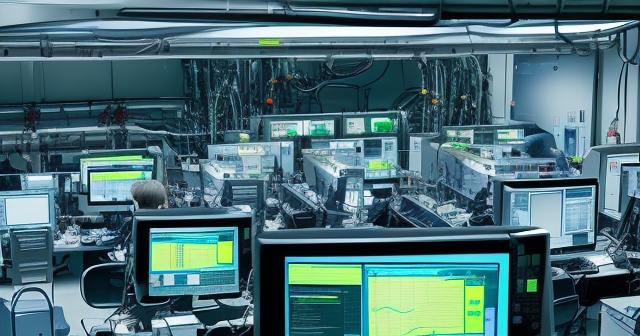
But the scope extends much further. In the healthcare sector, X-ray technicians (or radiologic technologists) operate imaging equipment, while dental technicians create prosthetics and orthodontic devices. Emergency medical technicians (EMTs) provide critical care in pre-hospital settings, relying on technical medical procedures and equipment.
Industry is a massive employer of technicians. Maintenance technicians ensure factory machinery remains operational, electrical technicians work on power systems and circuitry, and specialized roles like wind technicians are crucial for maintaining renewable energy infrastructure. These roles demand physical dexterity, knowledge of complex systems, and often the ability to work in challenging environments.
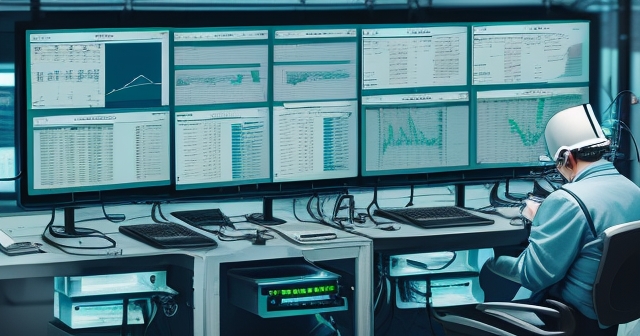
Even fields we might not immediately consider "technical" rely heavily on technicians. The arts and entertainment industry employs audio technicians (sound engineers), lighting technicians, and stage technicians to manage the technical aspects of performances and productions. In computing, computer technicians and network technicians are the backbone of our digital infrastructure, installing, configuring, and troubleshooting hardware and software.
Think about agriculture, environmental science, geology – virtually any field that involves specialized equipment, data collection, or complex procedures will have technicians. This expansive presence highlights how deeply integrated technical expertise is within the fabric of modern society. The specific environment dictates the required skills and knowledge, but the core function of applying technical principles remains consistent.
Beyond the Conventional: Unexpected Domains of Technical Practice
While fields like science, engineering, and healthcare are obvious homes for technicians, the term "technical" itself can apply to high skill in intellectual or artistic techniques, extending the definition into realms that might surprise us. This broader interpretation challenges the traditional, often lab-centric view of the technician role.
Consider the arts. While a painter might be celebrated for their creative vision, a master printmaker demonstrates exceptional technical skill in preparing plates, mixing inks, and operating presses. An animator requires not only artistic talent but also profound technical knowledge of software, rendering processes, and timing. These individuals are arguably technicians of their craft, possessing a deep mastery of the methods and tools used to produce their work.
The concept of a "technician" can also describe someone whose expertise lies specifically in the execution of established procedures or techniques, potentially distinct from originating new ideas or theories. In some contexts, this might carry a connotation of high proficiency in method without necessarily possessing the innovative flair of an artist or the theoretical depth of a scientist. However, it is crucial to recognize the immense value of this mastery of technique.
A fascinating example provided in the source material that bridges traditional technical roles with business operations is the mention of an accounting technician. At first glance, this might not fit the image of someone working with machines in a lab. However, accounting involves highly structured processes, specific software tools, adherence to complex regulations, and precise data handling. An accounting technician applies specialized knowledge of accounting principles and procedures to perform tasks like bookkeeping, financial record maintenance, and tax preparation. This requires a specific technical skill set within the financial domain, demonstrating that the technical role is not limited to the physical sciences or mechanical trades.
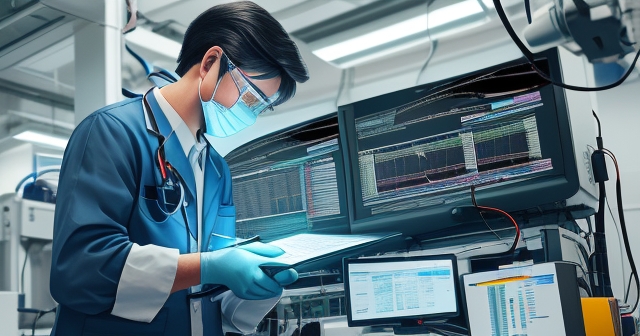
This inclusion of roles like accounting technician, animators, or master printmakers within the broader concept of a "technician" underscores the need for a more inclusive understanding. It reminds us that technical expertise is fundamentally about the skillful application of knowledge and technique to achieve a specific outcome, regardless of whether that outcome is a scientific measurement, a functioning machine, a piece of art, or accurate financial records.
Navigating Ambiguity: The Ongoing Quest for an Inclusive Definition
Given the vast range of roles and environments we've discussed, it becomes apparent that defining "technician" precisely can be challenging. The term carries different connotations in different contexts, and traditional definitions can sometimes feel too narrow, failing to capture the full spectrum of technical contributions in the modern workforce.
Historically, the term might have been more heavily associated with laboratory work or industrial trades. However, as technology has evolved and specialized skills have proliferated across all sectors, the traditional definition has been stretched and, at times, found wanting. How do we accurately describe the technical skills of someone managing complex data systems, maintaining intricate software, or applying sophisticated financial modeling techniques if our definition is limited to hands-on work with physical equipment?
There is a growing recognition that many individuals who perform highly skilled, technical work – individuals who are essential to the functioning of their organizations – may not always be formally recognized or categorized under a traditional "technician" title. This can lead to a lack of visibility, professional development opportunities, and appropriate recognition for these vital roles.
Efforts are underway in various sectors to address this ambiguity and advocate for a more inclusive understanding. Initiatives like the "Technician Commitment," mentioned in the source, aim to ensure that technical staff across all disciplines, particularly within research and higher education institutions, are properly recognized, valued, and supported. This commitment encourages institutions to acknowledge the diverse contributions of technical roles, from traditional lab work to IT support, data management, creative technical roles, and more.
The drive for an inclusive definition is not just about semantics; it has practical implications. A clearer, broader understanding helps in workforce planning, training program development, career progression frameworks, and ultimately, ensuring that organizations effectively leverage the expertise of all their skilled personnel. By embracing a definition that acknowledges technical skill wherever it is applied, we can gain a more accurate picture of the modern workforce and better support the professionals who contribute their unique capabilities.
The Indispensable Contribution: Why Technicians Are Vital Across Industries
Beyond their specific skills and diverse roles, what unites all technicians is the critical value they bring to their organizations and society as a whole. They are not merely support staff; they are active contributors whose work is often essential for innovation, operation, and problem-solving.
Technicians act as crucial enablers. In research settings, they enable scientists to conduct experiments by managing the technical infrastructure. In engineering, they enable the realization of designs by assisting with prototyping, testing, and production. In healthcare, they enable physicians to diagnose and treat patients by operating imaging equipment or maintaining life support systems.
Their role in maintaining complex systems is paramount. Think about the power grid, communication networks, transportation systems, or manufacturing plants. These rely on continuous operation, and it is often technicians who are responsible for preventative maintenance, monitoring performance, and responding rapidly to failures. Without their vigilance and expertise, the infrastructure we depend on would quickly grind to a halt.
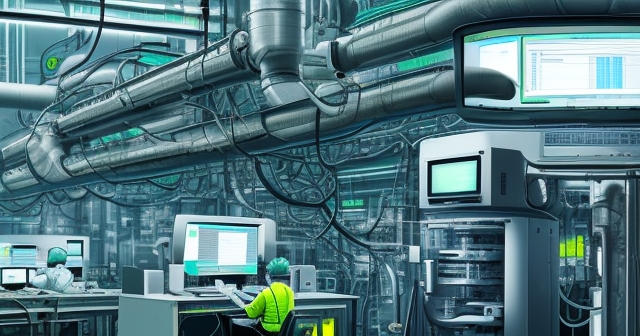
Furthermore, technicians often play a key role in troubleshooting and problem-solving. When something goes wrong – a machine breaks down, a system malfunctions, an experiment yields unexpected results – it is frequently the technician's practical knowledge and diagnostic skills that identify the issue and implement a fix. They bridge the gap between theoretical understanding and practical application, translating complex problems into actionable solutions.
They are also essential for quality control and assurance, ensuring that processes are followed correctly and outputs meet required standards. This attention to detail and adherence to procedure is vital in fields ranging from manufacturing pharmaceuticals to processing financial transactions.
In many ways, technicians are the engine room of progress and stability across countless fields. Their hands-on expertise, problem-solving abilities, and dedication to technical excellence make them truly indispensable. Recognizing the value of these contributions is key to appreciating the full scope of the technician role in the modern world.
Bridging Worlds: Understanding "Technical Skill" in Complex Data Environments
We've explored how the definition of a technician extends beyond traditional labs and workshops, encompassing fields like accounting and digital arts. This expanded view helps us bridge the gap to understanding "technical skill" within less physically-oriented, yet incredibly complex, domains, such as financial markets.
Consider the world of finance and investment. While we might think of strategists, analysts, or portfolio managers, there are also individuals whose work is deeply rooted in applying structured, systematic processes to data. This application of specialized knowledge and methodology to a specific domain fits within a broader understanding of "technical work."
Just as a lab technician applies specific techniques to analyze chemical compounds, or a computer technician applies specific procedures to diagnose network issues, professionals in finance apply specific methods to analyze market data, manage risk, and execute transactions. This requires a distinct set of skills: the ability to understand and interpret complex data sets, proficiency with specialized software and tools, and the discipline to follow defined methodologies.
In this context, "technical skill" isn't about operating heavy machinery; it's about operating complex analytical models, understanding the mechanics of financial instruments, and executing precise actions within sophisticated trading systems. It involves the mastery of specific techniques used to extract insights from vast amounts of information and translate those insights into strategic decisions or automated processes.
Therefore, when we think about the "technician" archetype in a broader sense – someone skilled in a technical process or field – we can begin to see parallels in roles that apply rigorous, data-driven methodologies to achieve specific outcomes in the financial world. This interpretation lays the groundwork for understanding a particular approach to market analysis that relies heavily on structured techniques and data interpretation: technical analysis.
Technical Analysis: Applying Structured Techniques to Financial Markets
Now, let's narrow our focus from the broad definition of a technician to a specific application of technical skills within the financial realm that is highly relevant to investors and traders: technical analysis.
What is technical analysis? In essence, it is a trading discipline employed to evaluate investments and identify trading opportunities by analyzing statistical trends gathered from trading activity, such as price movement and volume. Unlike fundamental analysis, which focuses on a company's intrinsic value based on financial statements and economic factors, technical analysis looks solely at the patterns and signals derived from market prices themselves.
This approach relies on several core principles:
-
Market action discounts everything: Technicians believe that all fundamental factors, market psychology, and other influences are already reflected in the price of an asset.
-
Prices move in trends: Technical analysts seek to identify and profit from trends in price movement.
-
History tends to repeat itself: Price patterns tend to repeat over time, and technical analysis uses these historical patterns to predict future movements.
Applying technical analysis requires specific skills and tools, much like any other technical field. It involves:
-
Reading Charts: Understanding candlestick patterns, bar charts, line charts, and other visual representations of price history.
-
Using Indicators: Applying mathematical calculations based on price and volume (like Moving Averages, RSI, MACD) to generate trading signals.
-
Identifying Patterns: Recognizing formations like head and shoulders, triangles, flags, and pennants that suggest potential future price direction.
-
Analyzing Volume: Using trading volume data to confirm price trends and patterns.
Think of the technical analyst as applying a specific set of techniques to the raw data provided by the market. They are using specialized tools (charts, indicators) and applying established processes (pattern recognition, signal interpretation) to diagnose the market's health and predict potential future movements. This requires a different kind of "technical skill" than fixing a machine, but it is technical nonetheless – a systematic application of specialized knowledge and methods to a complex system.
For investors and traders, understanding and applying technical analysis effectively is a form of developing technical expertise in the financial markets. It's learning the specific technique for dissecting market behavior.
Mastering the Technical Process: Developing Expertise in Financial Trading
Just as becoming a skilled laboratory technician requires rigorous training and practice, mastering technical analysis in financial trading is a process of developing specialized expertise. It's not simply about knowing what a moving average is, but understanding how to apply it effectively within a trading strategy, how it interacts with other indicators, and when its signals are more or less reliable.
Developing this expertise involves several key steps, mirroring the path of proficiency in other technical fields:
-
Foundational Knowledge: Learning the basic principles of technical analysis, understanding chart types, fundamental indicators, and common patterns.
-
Tool Proficiency: Becoming adept at using trading platforms and charting software to access data, apply indicators, and draw trendlines.
-
Methodology Development: Creating or adopting specific trading strategies based on technical principles. This involves defining entry and exit rules, stop-loss placements, and risk management parameters.
-
Practice and Application: Backtesting strategies on historical data and paper trading (simulated trading with virtual money) to gain experience without risking capital.
-
Continuous Learning: The markets are dynamic. Mastering technical analysis requires staying updated on new indicators, techniques, and how patterns perform in different market conditions.
-
Emotional Discipline: Perhaps one of the hardest parts of technical trading. Sticking to your technical plan, even when faced with losses or tempting opportunities, requires significant mental fortitude. This is a 'soft' skill critical for applying technical methods effectively.
Thinking of yourself as a financial "technician" who is mastering the technical process of market analysis can be a useful mindset. It emphasizes the systematic, skill-based nature of this approach to trading. Success comes not from luck, but from the diligent application of learned techniques and a deep understanding of how your chosen tools and methods interact with market behavior.
Just as a skilled engineer understands the tolerances and limitations of their materials, a proficient technical trader understands the probabilities and potential pitfalls associated with specific chart patterns or indicator signals. It's about applying a technical discipline with precision and consistency.
Tools and Platforms: The Ecosystem Supporting the Financial Technician's Craft
Every technician relies on specific tools and an environment optimized for their work. A lab technician needs pipettes, spectrometers, and a clean workspace. A computer technician needs diagnostic software and hardware tools. For the financial "technician" employing technical analysis, the primary tools are charting software, analytical indicators, and access to real-time market data, all typically provided through a trading platform.
The choice of platform is crucial for applying technical analysis effectively. A good platform provides robust charting capabilities, a wide range of technical indicators, drawing tools, and the ability to customize layouts to suit your analytical approach. It needs to deliver reliable data feeds so your analysis is based on accurate, up-to-date information.
Furthermore, the platform is where you translate your technical analysis into action by placing trades. Fast execution speeds and competitive spreads are essential, especially for strategies that rely on quick entries and exits based on short-term price movements identified through technical signals.
Consider the different types of assets you might analyze using technical methods: stocks, commodities, currencies (Forex), indices, cryptocurrencies, and more. A versatile platform allows you to apply your technical skills across a broad range of markets, increasing your potential opportunities.
If you're looking to develop your skills as a financial technician and are considering where to practice your technical analysis and execute trades, the platform you choose is a key piece of your toolkit. You need a reliable partner in your technical trading journey.
如果你正考慮開始進行外匯交易或探索更多差價合約商品,那麼 Moneta Markets 是一個值得參考的平台。它來自澳洲,提供超過 1000 種金融商品,無論是新手還是專業交易者都能找到合適的選擇。
When evaluating platforms, consider features that support your technical work: advanced charting packages, access to a wide library of indicators, tools for backtesting, and the ability to set up alerts based on technical conditions. These features are the equivalent of a technician's specialized instruments – they empower you to perform your technical analysis with precision.
In choosing a platform to hone your technical trading skills, you are essentially selecting the environment and tools that will support your development as a financial technician. It's a decision that impacts your ability to effectively apply your learned techniques and strategies in the live market.
在選擇交易平台時,Moneta Markets 的靈活性與技術優勢值得一提。它支援 MT4、MT5、Pro Trader 等主流平台,結合高速執行與低點差設定,提供良好的交易體驗。
The Path to Proficiency: Continuous Learning in Technical Disciplines
Whether we are discussing a lab technician, a computer technician, or a financial "technician" applying technical analysis, the path to true proficiency is marked by continuous learning and adaptation. Technical fields are rarely static; new tools emerge, processes evolve, and the systems being analyzed change.
For someone focused on technical analysis in trading, this means staying updated on new research into market behavior, understanding how global events might influence typical price patterns, and constantly refining their strategies based on experience and performance data. It involves studying advanced charting techniques, exploring less common indicators, and learning how to apply technical methods across different timeframes and asset classes.
Just like a maintenance technician must learn about the latest models of machinery, a technical trader must understand how evolving market structures or the rise of algorithmic trading might impact the effectiveness of traditional technical patterns. This requires a commitment to ongoing education, reading relevant literature, participating in forums, and learning from both successes and failures.
Experience is a critical teacher. Applying technical analysis in real-market conditions, even through simulated trading initially, provides invaluable feedback. Did the pattern behave as expected? Was the signal reliable in this specific market environment? Reflecting on these outcomes helps refine your understanding and application of the technical methods.
Furthermore, proficiency in any technical field often involves mastering the soft skills that complement the hard skills. For a financial technician, this includes risk management, emotional control, and discipline – the ability to execute the technical plan without letting fear or greed interfere. These are skills developed through practice and conscious effort, much like the dexterity a surgical technician hones over years.
Ultimately, becoming a highly skilled technician, regardless of the field, is a journey of dedication to mastering a specific set of skills and knowledge, continuously refining those abilities, and adapting to the dynamic nature of their domain. For the aspiring technical trader, this journey involves immersing oneself in the discipline of technical analysis, practicing diligently, and maintaining a commitment to lifelong learning in the complex world of financial markets.
若你正在尋找具備監管保障且能全球交易的外匯經紀商,Moneta Markets 擁有 FSCA、ASIC、FSA 等多國監管認證,並提供資金信託保管、免費 VPS、24/7 中文客服等完整配套,是不少交易者的首選。
Conclusion: The Evolving Landscape of Technical Roles, From Lab to Market
We began by exploring the foundational definition of a technician as a skilled individual trained in technical processes, capable of operating, maintaining, and repairing complex systems. We saw how this definition applies across a vast kaleidoscope of fields, from traditional science and engineering labs to healthcare, the arts, and even business functions like accounting.
We discussed the ambiguity surrounding the term and the ongoing efforts to embrace a more inclusive definition that recognizes the diverse contributions of technical professionals in all sectors. The indispensable value they bring – enabling innovation, maintaining infrastructure, and problem-solving – is undeniable.
We then bridged this broad understanding to the specific context of financial markets, arguing that applying rigorous, data-driven methodologies like technical analysis constitutes a form of "technical work." Mastering technical analysis involves developing a specific set of technical skills – reading charts, using indicators, recognizing patterns – and applying them systematically within the complex environment of financial trading.
Just as technicians in other fields rely on specialized tools and environments, financial technicians depend on robust trading platforms that provide the necessary charting, analytical, and execution capabilities. And like any technical discipline, achieving proficiency in technical analysis is a continuous journey of learning, practice, and adaptation.
The landscape of technical roles is constantly evolving, reflecting advancements in technology and the increasing specialization of knowledge across all industries. From the technician meticulously calibrating equipment in a laboratory to the individual skillfully analyzing price charts to identify trading opportunities in the market, technicians are vital professionals whose expertise is essential for navigating and succeeding in our increasingly technical world. Recognizing the breadth and depth of these roles, and supporting the individuals who fill them, is crucial for progress in every field, including the dynamic world of financial markets.
define techniciansFAQ
Q:What is the primary role of a technician?
A:A technician is skilled in specific technical processes, facilitating the operation, maintenance, and repair of complex systems across various industries.
Q:What types of skills do technicians possess?
A:Technicians possess a combination of practical skills, technical knowledge, analytical capabilities, and problem-solving abilities necessary for their specific fields.
Q:In which industries can technicians work?
A:Technicians can work in diverse industries including healthcare, engineering, information technology, arts, manufacturing, and many others.
You may also like
Calendar
| 一 | 二 | 三 | 四 | 五 | 六 | 日 |
|---|---|---|---|---|---|---|
| 1 | 2 | 3 | 4 | 5 | 6 | 7 |
| 8 | 9 | 10 | 11 | 12 | 13 | 14 |
| 15 | 16 | 17 | 18 | 19 | 20 | 21 |
| 22 | 23 | 24 | 25 | 26 | 27 | 28 |
| 29 | 30 | 31 | ||||
發佈留言
很抱歉,必須登入網站才能發佈留言。